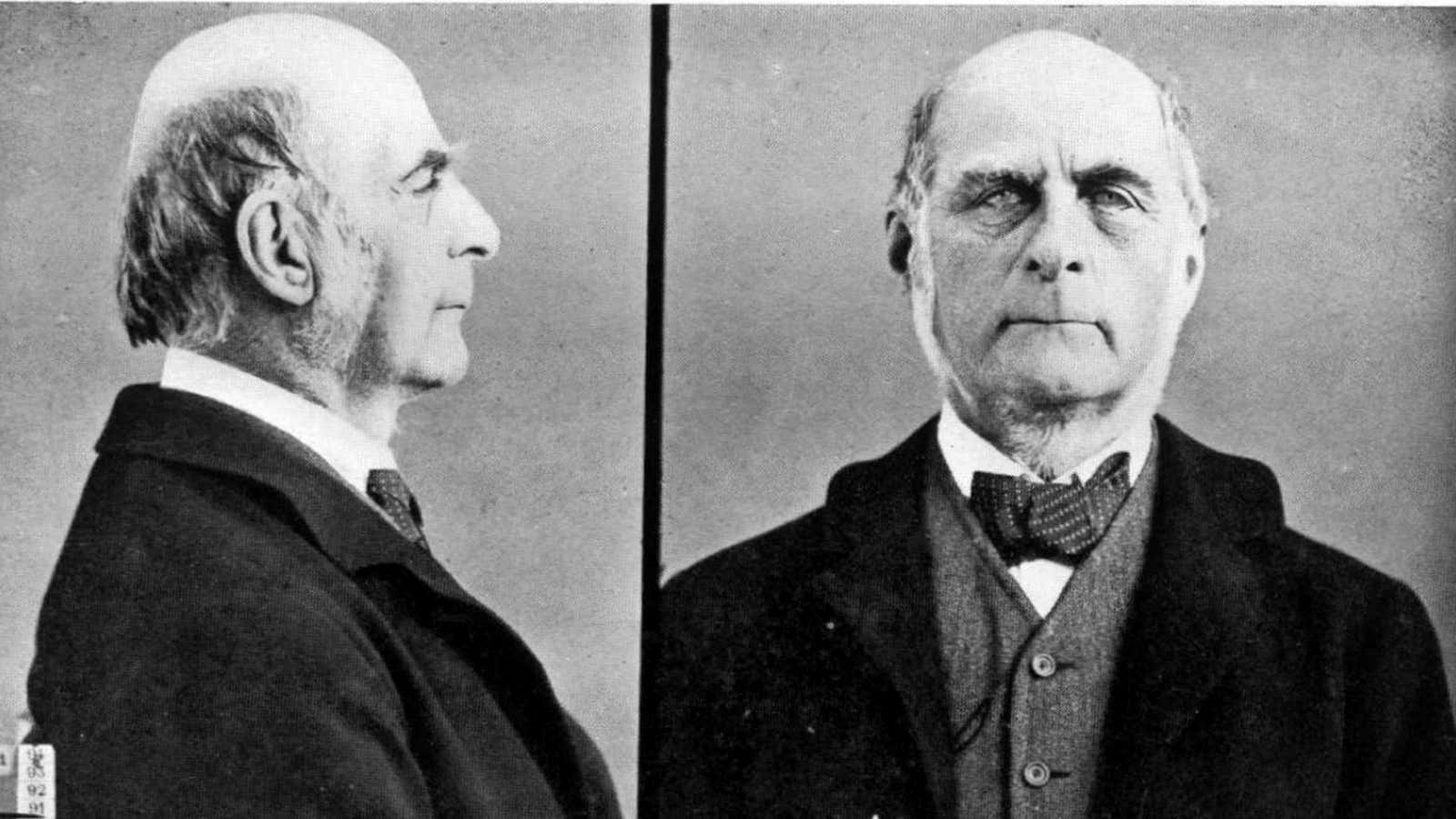Francis Galton was the founder of modern statistics. He was also a sexist, racist and eugenicist.
“One notable peculiarity in the character of the woman is that she is capricious and coy, and has less straightforwardness than the man,” wrote Galton in his influential 1883 book (pdf) Inquiries into Human Faculty and its Development. He argued his entire life that the most gifted members of society, by his measurements, should have children, and others should not. If this led to the disappearance of certain races, then so be it. ”There exists a sentiment, for the most part quite unreasonable, against the gradual extinction of an inferior race,” he lamented.
Galton, who lived from 1822 to 1911, was a man of his time. In the late 19th century, his views, considered abhorrent today, were not unusual. Unfortunately, as a mathematical genius who introduced the concepts of correlation, regression to the mean, and the standard deviation, his views on human difference were given the patina of science. Galton, who coined the term “nature versus nurture” was not alone among the luminaries of statistics in holding horrendous opinions about the capabilities of people of different races and genders. His equally influential followers Karl Pearson and R.A. Fisher held similar views.
More than 100 years after Galton’s death, in July 2017, the Google software engineer James Damore wrote a letter to his colleagues about the innate differences between men and women that he thinks account for the disparity between the sexes in engineering and management. His letter is sadly reminiscent of the views of Galton and his peers.
Let’s be clear: Damore is no Galton in terms of intellectual heft. Any reading of his poorly argued letter makes that clear. But he and Galton do share certain similarities that may account for their wrongheaded beliefs.
Both are white men, with mathematical backgrounds, who have lived in societies in which they are deeply privileged. Both men observe their world, and see that others like them have been successful, and look for “science” that might justify their success. As The Economist points out, Damore spends little time in his letter considering evidence or viewpoints that may discredit his theories—Galton’s thinking suffered from the same flaws.
Of course, it is conceivable that innate differences between women and men may, in some ways, impact success at companies like Google. Scientists have found that women and men’s brains have different physical makeup (suggesting a possible advantage for women).
If Damore is correct that innate differences between men and women impact success at companies like Google, it would fly in the face of everything we have learned in the last century. People like Galton and the eugenicist Charles Davenport, who believed that women and people of color were intrinsically less capable than white men, have been proven wrong at every turn. Any “scientific” argument that amounts to defending the position of white men must face that reality and be humbled by it.
